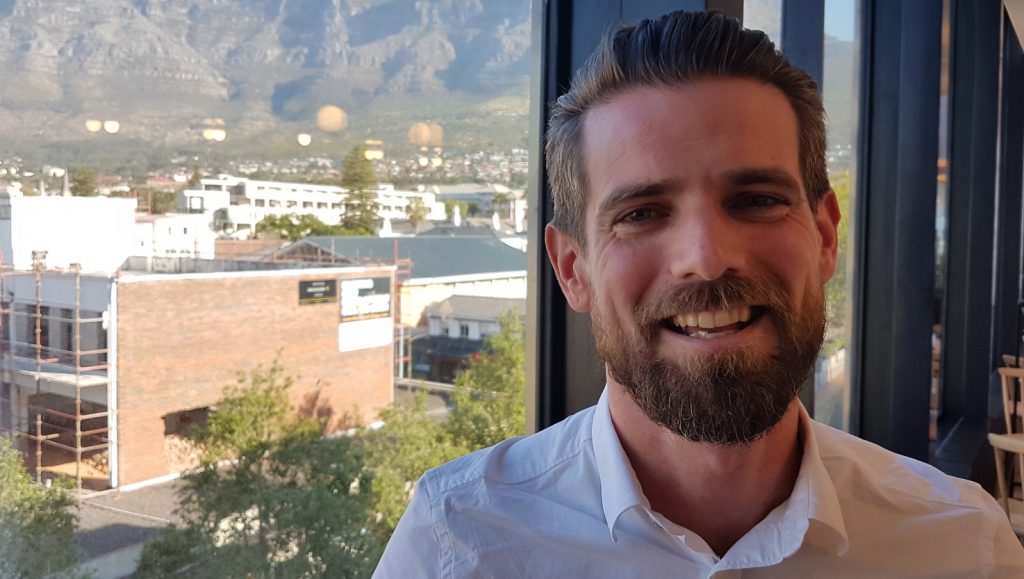In a move that signals a major leap forward in generative AI, OpenAI has quietly rolled out ChatGPT-5, its most advanced model to date….
Getsmarter co-founder wants to educate 100 000 students by 2030 with new virtual school

After exiting his education platform GetSmarter for over $100-million to US company 2U in 2017, Rob Paddock is back with a new startup — an entirely online high school. And he has big aims — to educate 100 000 students over the next 10 years.
Getting Getsmarter ready for exit was no easy thing. Last week Paddock told Ventureburn how he “burnt himself into the ground” on his way to closing one of the biggest deals ever in SA’s tech startup sector and scaling the company he started in 2008 with his brother Sam (see this story).
His latest endeavour — Valenture Institute, which he began working on in December last year — is an entirely online school for high-school students (grades 9 to 12) which is aligned to the UN’s Sustainable Development Goals (SDGs).
The company’s marketing site was launched on 3 September and the school is expected to open applications for 2020 admission later this month.
Rob Paddock’s new online school Valenture Institute is set to open applications for its first cohort, this month
The first cohort is expected to start in January next year, with learners initially drawn from the UK, South Africa and neighbouring countries. Classes will for now be conducted in English.
The school’s back-office headquarters will be based in Cape Town, with offices in London, and offices soon to be in Boston.
The school’s chancellor is Rob Lue, is the faculty director of HarvardX and Harvard Ed Portal at Harvard University and the school is partnering with Pearson Edexcel, which is equivalent to a Cambridge accreditation.
While Paddock wouldn’t reveal how many learners the school will take on, one thing for sure is that it won’t be cheap.
Fees, he said, would be comparable to local private school fees or about $5000 a year, dependent on how many subjects students signed up for.
He added that the hope is that the institution will be able to offer a number of bursaries to under privileged children.
‘Socially-rich curriculum’
It’s certainly not the first virtual school of its kind. A number of private institutions and US universities run such schools, including a $25 000-a-year virtual school run by Stanford University.
But it could be one of the first based in Africa, or at least the first argues Paddock, that offers the kind of “socially rich” curriculum that his school will offer. Students will have the chance to sign up to sports clubs, dance academies and music societies all around the world.
Students will also be able to take part in one or more of the school’s 15 online clubs which include areas such as movie appreciation, robotics, gaming and chess.
Paddock has already brought together a team of 27 people and has ploughed in millions of rands of his own money and that of his investor Lebanese born American Samer Salty, who helped fund Getsmarter to the tune of $5-million through a subsidiary called DiGame. Salty is the founder and managing partner of Zouk Capital.
Most of the current staff of 27 are made up of software developers, learning designers, subject-matter experts and tutors.
Paddock says he’s looking to grow the school’s staff complement to 47 by year end.
In founding the new school, Paddock has taken two former colleagues from Getsmarter with him — the school’s chief product officer Amy Johnson and the school’s registrar Daniel Coetzer.
The school’s chief academic officer, Michael Darby, founded Waterstone College in Johannesburg in 2007.
Dial in from a coffee shop
The selling point — if you can call it that — of a virtual school is that unlike other kinds of schools, students will be able to dial in from their home or even from their local coffee shop.
“Some of the students that are calling in (to the school) are high performance athletes where the current school system doesn’t work for them — it’s too constrained or they have too many other responsibilities,” explained Paddock.
A virtual school environment, he reckons, is ideal for not just these kinds of students, but also others such as those who have been bullied in traditional schools and those who have challenges around social anxiety.
Paddock described the platform as “like a Skype-like environment built specifically for education”, with a video conferencing component, a whiteboard and the ability for students to input lines of code or vote on various polls.
While virtual classrooms will be made up of between 20 and 25 students, the platform will even allow students to take part in breakout groups of five, for example where they can work on a problem together on a problem, before presenting it to the rest of the class.
In addition, parents will also have access to learning analytics of their child in real-time — things like how long students spent online that day, what challenges they encountered and each of their learning assessments.
They will also get feedback from the school, via a monthly call between themselves, the student and the mentor.
‘No slave to donors’
Yet a critical question for many will be whether the school, with school fees of $5000 a year, risks becoming the exclusive preserve of the rich? Why not run the school as a non-profit and offer lower fees?
It’s something Paddock says he considered carefully when setting up the school.
Had the school been set up as a non-profit it would basically have become, in his words, “a slave to donors” — forever dependent on grant funding. This would have limited the school’s ability to grow and take on a large enough number of students from lower-income groups.
“Something we saw at Getsmarter, is when you’re able to operate a business in South Africa and have the majority of your customers coming from the US and UK and (from those countries with) other hard currencies, your ability to generate a profitable business is significant.
“One of the opportunities from creating a really significantly profitable business is that you can feed this back into a scheme, so that you become a kind of self-contained, self-sustaining entity that allows for extensive scholarship schemes throughout South Africa for South African students,” he said.
All the same, education experts will be carefully watching to see whether in taking it online, a school will really be able to transform the classroom experience.
In doing so, what many will want to know is — will this be just something that the rich will be able to enjoy, or will this in time, be the future of schools for rich and poor, wherever they are in the world? Only time will tell.
Read more: I burnt myself into the ground, reveals Getsmarter co-founder Rob Paddock on $103m deal
Read more: 2U concludes $103m deal to acquire SA startup GetSmarter
Read more: Chance meeting helped SA startup GetSmarter secure over $100m sale
Featured image: Former Getsmarter co-founder Rob Paddock and founder of Valenture Institute (Stephen Timm)

